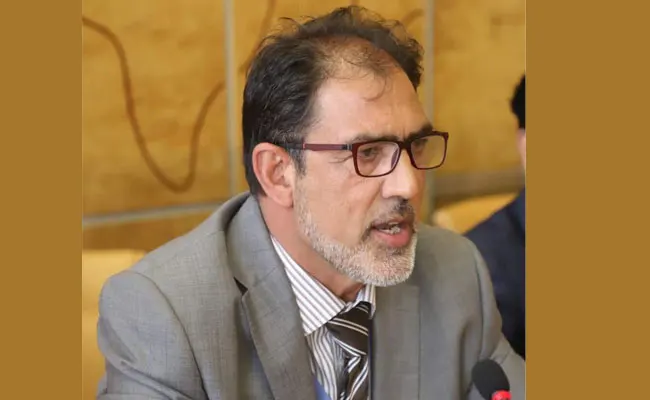Altaf Hussain Wani
In the shadow of protracted claims of normalcy and after more than six years of waiting, the Indian government has yet to initiate a meaningful political process in Kashmir. This process could have been instrumental in bridging the huge trust gap between Srinagar and New Delhi and foster a sense of belonging among the Kashmiri people who feel increasingly alienated and disempowered.
The Modi government’s indifference to the plight of ordinary Kashmiris has become strikingly evident. The Bharatiya Janata Party (BJP) leadership has often failed to take cognisance of the suffering and turmoil of the Kashmiri people, instead exacerbating the situation through its stringent policies rather than addressing their legitimate grievances.
The government’s refusal to consider or respect the various political voices in Kashmir has only served to further its own nationalist ambitions. The government has used the chaos as an opportunity to change residency laws and allow non-natives to settle permanently and gain the right to vote, which is seen by many as an attempt to shift the demographic balance in the region in favour of the central government.
Ahead of a Supreme Court directive on Article 370, which mandates the holding of elections in Jammu and Kashmir, constituencies have been redrawn in favour of the BJP, setting the stage for a possible majority in the upcoming assembly elections. This gerrymandering indicates a deliberate strategy to shape the political landscape in the party’s favour.
After the revocation of Article 370, the BJP focussed on reshaping the political framework in Jammu and Kashmir to suit its vision. This included creating a new political hierarchy and sidelining traditional parties in favour of those more inclined towards the central government’s agenda.
Efforts to dismantle the existing political structures were relentless, with the BJP fostering dissent within the traditional parties to create a favourable third front. This tactic of political realignment is not new in Kashmir’s turbulent electoral history, but the scale and nature of the BJP’s interventions are unprecedented.
Ruthless suppression of dissent
Besides ruthless suppression of dissent, the nationalist regime utilised the repressive state apparatus to advance its agenda. On the one hand, the resistance leadership, which was believed to be promoting the freedom-loving ideology, was gaoled, while on the other, numerous political parties, including JI, JKLF, ML, JKNF, PDFP, Muslim Conference and others, were declared “unlawful associations” under the controversial UAPA Act.
The NIA and other state agencies, notorious for their abuse of authority, have been unleashed to target, terrorise and intimidate their workers and supporters. This crackdown has not spared the mainstream parties and has led to a significant political vacuum, especially now as the electoral battle looms.
The announcement of the election manifesto has now raised the question of how traditional parties like the National Conference (NC), the Peoples Democratic Party (PDP) and the Congress will reconnect with a population that feels deeply alienated. The demand for restoration of statehood has gained momentum, making it difficult for these parties to make it to the polls.
It is worth noting that the demand for restoration of statehood has gained strength in all three regions, including Jammu where the Dogra community under the leadership of Dogra Swabhiman Sangathan chief Lal Singh has also demanded separate statehood for Jammu and protection of land and property of the people of Jammu and Kashmir. So it will not be an easy journey for NC, PDP or Congress to navigate through murky waters and reach out to the masses at a time when they are running out of cards. They have nothing to sell or show to the public.
Fragmented opposition
With the opposition alliance fragmented, the BJP seems to have the upper hand as it benefits from strategic election planning and divisive politics. However, the outcome will largely depend on how the people of Kashmir react to their increasing alienation and marginalisation.
The BJP’s nationalist and development-oriented rhetoric stands in sharp contrast to that of the opposition, which emphasises on lost identity and statehood. However, the historical mistrust between Kashmiris and political parties, exacerbated by allegations of betrayal, poses a major challenge in mobilising support.
This election is more than a political contest; it is a reflection of the deep-seated problems plaguing Jammu and Kashmir. Beyond the battle for seats, it is a larger battle for the rights and freedoms of the Kashmiri people, overshadowed by draconian surveillance, restrictions on civil liberties and a relentless military crackdown that has already claimed hundreds of lives.
The immense suffering of the people of Jammu and Kashmir, viewed through the lens of an “occupied” territory, highlights the urgent need for genuine political dialogue. Instead of focussing only on electoral gains, there is an urgent need to address human rights and freedoms, hold talks on ending restrictions and release political and human rights leaders.
With the region at a crossroads, the upcoming elections offer a glimpse into Kashmir’s future, teetering between continued unrest and the possibility of a new, more inclusive political chapter.
[The author is chairman of the Islamabad-based think tank Kashmir Institute of International Relations and can be reached at [email protected]]










